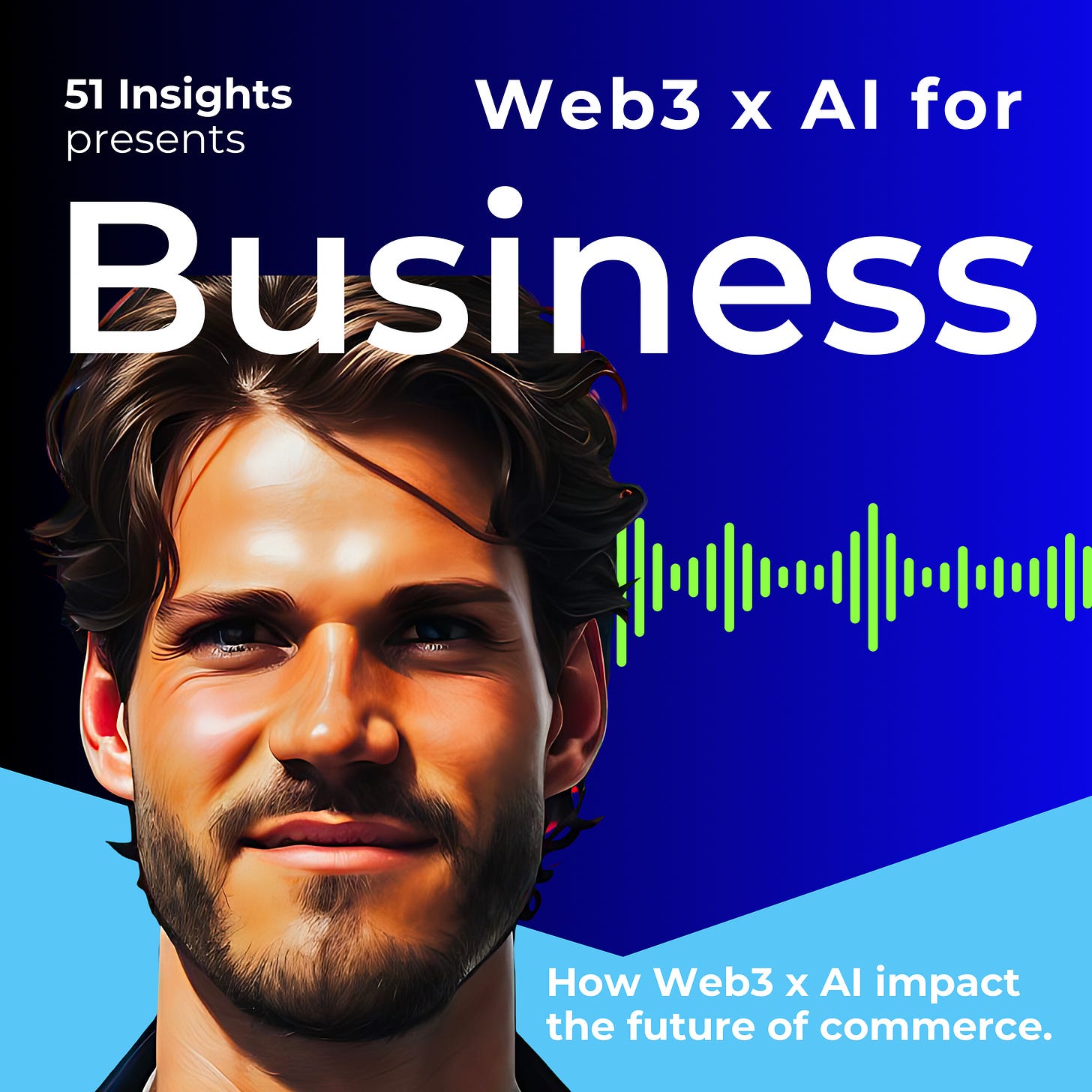Hi, it’s Marc. ✌️
"Blockchain is not a magic wand you plug in. It requires a mindset change—it’s a paradigm that demands adaptation to decentralisation for it to work effectively."
We sat down with Pedro Lopez-Belmonte Eraso, Web3 & tech innovation expert, to discuss use-cases of Web3 technology in the luxury sector. With 11+ years of experience in the luxury industry including building Richemont Group’s blockchain tech strategy for the past 6 years, Pedro explained why blockchain is not just a technology but a paradigm shift.
Richemont is a Switzerland-based luxury goods holding company with operations into three main divisions: jewelry maisons, watches, and fashion and accessories. In 2021, its maison Cartier partnered with LVMH, and Prada to launch Aura Blockchain Consortium for luxury brands. The platform uses blockchain to ensure transparency, traceability, and proof of authenticity for consumers.
On Digital Product Passports, Pedro said:
"Digital passports are one of the most relevant blockchain use cases. They will enable interactions with third-party services, such as reselling, recycling, and insurance, at minimal cost."
Here’s what we’ve covered:
DPPs: Luxury watches with digital passports can increase resale value by up to 30% while strengthening customer loyalty.
Embrace Ecosystems: Instead of building proprietary blockchain solutions, plug into established ecosystems like Ethereum or Polygon to reduce costs and unlock scalability.
Educate Your Team: Schedule quarterly workshops to ensure leadership understands blockchain’s potential beyond NFTs.
And much more.
The luxury sector is still at the beginning of its blockchain journey. Blockchain isn’t just about technology—it’s about a mindset shift. To succeed, brands must adapt to decentralization and adopt standards that allow interoperability. While some companies chase trends, the most successful brands focus on utility, customer empowerment, and long-term value creation.
Here’s how you can stay ahead.
Key Take-Aways for Brand Leaders
Shift to Utility: The future of blockchain lies in digital passports, loyalty programs, and pre-owned marketplaces—not collectibles. By 2025, shift 50% of your blockchain projects from collectibles to utility-based applications.
PRO TIP: Measure success with metrics like retention rate and engagement frequency, not speculative sales.
Embrace Ecosystems Over Proprietary Systems: Blockchain ecosystems (e.g., Polygon, Ethereum) offer scalability and cost-efficiency by integrating third-party services like recycling and resale. Partner with 3-5 ecosystem players within 12 months to test interoperable use cases.
PRO TIP: Use plug-and-play platforms to accelerate implementation while maintaining control.
Digital Product Passports: Digital passports enhance lifecycle tracking, resale value, and personalization. Done right, they can boost resale value by up to 30%.
PRO TIP: Pair passports with an interactive app for customers to track repairs, upgrades, or ownership history.
Build a Scalable Program: Blockchain records every product interaction, enabling deeper customer relationships. Create an NFT-based loyalty program where customers earn rewards for product usage or participation in events.
PRO TIP: Automate rewards through smart contracts, cutting program management costs by 20-30%.
Avoid NFT Mistakes: Porsche’s NFT project failed due to poor value delivery, while IWC’s Diamond Hand Club succeeded by airdropping free tokens and building community value. Avoid upfront charges for NFTs. Start with free airdrops and focus on exclusive benefits like VIP events.
PRO TIP: Use token-gated experiences to engage loyal customers.
Data Potential with Blockchain: Blockchain offers high-quality, privacy-focused data collection. Brands can offer 10-20% discounts or perks to incentivize customers to share behavioural data securely.
PRO TIP: Build a blockchain-based data dashboard to monitor customer trends while ensuring compliance.
Blockchain isn’t just technology. If applied correctly, it can redefine customer relationships. Leaders who embrace ecosystems, focus on utility, and adapt their mindset will unlock opportunities others can’t see.
As Pedro Lopez-Bajmonte said:
“Blockchain is not a tool; it’s a paradigm shift. Brands need to give up some control to gain transparency, trust, and scalability.”
Tune in to dive deeper into Pedro’s Web3 strategy.
That’s all for now.
Thanks,
Marc & Team
▶️Top Podcasts:
Find our other podcasts here:
⚡️ Work With Us & Reach 50k+ Corporate Leaders
Our industry OGs, vast network, research team & 50k+ B2B audience help you:
Co-publish enterprise-grade reports with us, driving traffic and boosting B2B outbound conversion rates.
Execute a multi-channel growth campaign that delivers better results than anything else in Web3's consumer space.


















